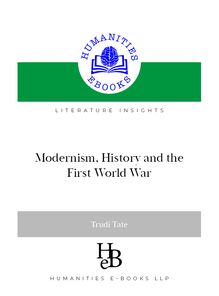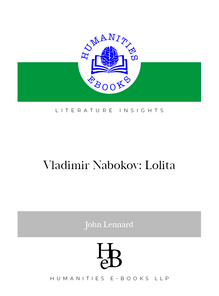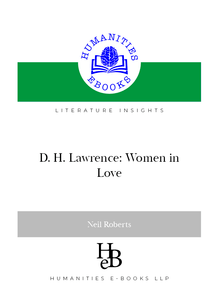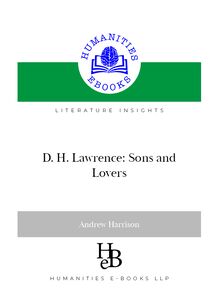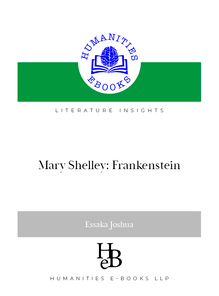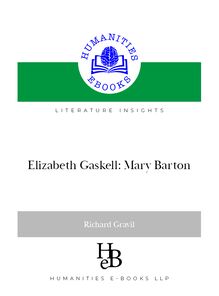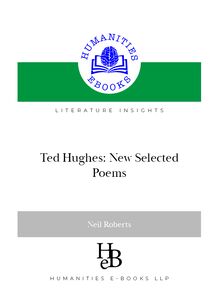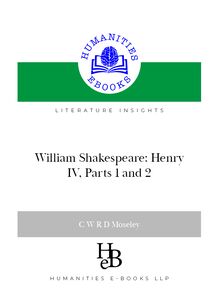-
 Univers
Univers
-
 Ebooks
Ebooks
-
 Livres audio
Livres audio
-
 Presse
Presse
-
 Podcasts
Podcasts
-
 BD
BD
-
 Documents
Documents
-
- Cours
- Révisions
- Ressources pédagogiques
- Sciences de l’éducation
- Manuels scolaires
- Langues
- Travaux de classe
- Annales de BEP
- Etudes supérieures
- Maternelle et primaire
- Fiches de lecture
- Orientation scolaire
- Méthodologie
- Corrigés de devoir
- Annales d’examens et concours
- Annales du bac
- Annales du brevet
- Rapports de stage
La lecture à portée de main
266 pages
English
Découvre YouScribe en t'inscrivant gratuitement
Je m'inscrisShakespeare's History Plays: Richard II to Henry V, the Making of a King , livre ebook
Découvre YouScribe en t'inscrivant gratuitement
Je m'inscris
Obtenez un accès à la bibliothèque pour le consulter en ligne
En savoir plus
En savoir plus
266 pages
English
Obtenez un accès à la bibliothèque pour le consulter en ligne
En savoir plus
En savoir plus

Description
This book, first published by Penguin in 1988, provides an excellent introduction to the world and action of Shakespeare's history plays.
Sujets
Informations
| Publié par | Humanities eBooks |
| Date de parution | 11 janvier 2021 |
| Nombre de lectures | 0 |
| EAN13 | 9781847601056 |
| Langue | English |
| Poids de l'ouvrage | 1 Mo |
Informations légales : prix de location à la page 0,0498€. Cette information est donnée uniquement à titre indicatif conformément à la législation en vigueur.
Extrait
Sakespeare’sHistory Plays
Ricard II to Henry V he Making of a King
C. W. R. D. Moseley
stories of the death of kings mirrors of ourfickle state this blessed plot passing brave to be a king this royal throne of kings this sceptred isle stories of the death of kings mirrors of our fickle state this blessed plotpassing brave to be a king this royal throne
☼ HEBFOR ADVICE ON THE USE OF THIS EBOOK PLEASE SCROLL TO PAGE 2
Using this Ebookt
*This book is designed to be read in single page view, using the ‘ît page’ command. *To navigate through the contents use the hyperlinked ‘Bookmarks’ at the left of the screen. *To search, click the search symbol. *For ease of reading, use <CTRL+L> to enlarge the page to full screen, and return to normal view using < Esc >. *Hyperlinks (if any) appear in Blue Underlined Text.
Permissions
Your purchase of this ebook licenses you to read this work on-screen.
You may print a copy of the book for your own use but copy and paste functions are disabled.
No part of this publication may be otherwise reproduced or transmitted or distributed without the prior written permission of both the copyright owner and the publisher.
This work is copyright. Making or distributing copies of this book would constitute copyright infringement and would be liable to prosecution.
Thank you for respecting the rights of the author.
Shakespeare’s History Plays
Richard IItoHenry VThe Making of a King
C. W. R. D. Moseley
HEB☼Humanities-Ebooks, LLP
© 1988, 2009 C. W. R. D. Moseley
he Autor as asserted is rigt to be identified as te autor of tis Work in accordance wit te Copyrigt, Designs and Patents Act 1988.
First publised by Penguin Books Ltd in 1988. his digital edition publised in 2009 by Humanities-Ebooks, LLP Tirril Hall, Tirril, Penrit CA10 2JE.
his book was first publised in material format by Penguin Books Ltd in 1988, and as been prepared for digital republication by te autor and Jon Lennard. Minor corrections ave been made, formatting as canged, and a new preface as been added, but neiter text nor notes ave been substantively emended.
he text of te Penguin index, rendered unusable in itself troug repagina-tion, is retained (witout page-numbers) as a list of topics on wic readers may searc tis edition electronically. he Ebook (wit te facility of word and prase searc) is available exclusively from ttp://www.umanities-ebooks.co.ukand MyiLibrary.com. A paperback is available from Troubador.co.uk ISBN 978-1-84760-105-6Ebook ISBN 978-1-84760-106-3 Paperback
Contents
Acknowledgements 7 Foreword 8 Foreword to the digital edition 10 Part I A Context for the Histories 11 1. Introduction 12 2. The Revolution of the Orbs 15 A The Model and its Consequences15 B The New Philosophy28 3. Actors on the Scaffold 37 4. Sad Stories of the Death of Kings 70 Part II The Ricardian History Plays 92 5. Mirrors of our Fickle State 93 6. Hawks and Handsaws: Modes and Genres of the Plays 101 7. This Blessed Plot: Husbandry and the Garden 123 8. Passing Brave to be a King:Richard II135 9. This Royal Throne of Kings:Henry IV, parts 1 and 2155 10. This Sceptred Isle:Henry V175 11. A Trim Reckoning: Language, Poetics and Rhetoric 202 Appendix. Language and Meaning: a Summary of the Debate 234 Further Reading 242
INDEX (List of searchable topics)
245
6
Shakespeare’s History Plays
Le théâtre est un point d’optique. Tout ce qui existe dans le monde, dans 1’histoire, dans la vie, dans l’homme, tout doit et peut s’y reL-echir, mais sous la baguette magique de l’art. L’art feuillette les siè-cles, feuillette la nature, interroge les chroniques, s’étudie à réprodu-ire la réalité des faits, surtout celle des moeurs et des caractères, bien moins leguée au doute et à la contradiction que les faits, restaure ce que les annalistes ont tronqué, harmonise ce qu’ils ont dépouillé, devine leurs omissions et les répare, comble leurs lacunes par des imaginations qui aient la couleur du temps, groupe ce qu’ils ont laissé épars, rétablit le jeu des Ils de la Providence sous les marion-nettes humaines, revêt le tout d’une forme poétique et naturelle à la fois, et lui donne cette vie de vérité et de saillie qui enfante l’illusion, ce prestige de réalité qui passionne le spectateur, et le poète le pre-mier, car le poète est de bonne foi. Ainsi le but de 1’art est presque divin: réssusciter, s’il fait de 1’histoire, créér, s’il fait de la poésie. Victor Hugo, Preface toCromwell(1827)
[The stage is a focus. Everything that exists in the world, in his-tory, in life, in humankind, can and should be reected there, but under the magical baton of art. Art leafs through nature and centuries, interrogates the chronicles, strives to reproduce the reality of facts, above all those of manners and personalities, less exposed to doubt and contradiction than other facts, restores what the annalists have truncated, harmonises their leavings, intuits and repairs their omis-sions, îlls their lacunae with imaginations in the colours of the times, organises what they leave scattered, restarts the game of Providence’s strings working human puppets, clothes all at once in poetic and nat-ural form, and gives it that life of leaping verisimilitude that nurtures illusion, the prestige of reality that empassions spectators, and îrst poets, for they are sincere. So the aim of art is all but divine: in writ-ing history, to revive, and in writing poetry, to create.]
Acknowledgements
C W R D Moseley 7
A list of my debts to predecessors in this îeld would be longer than the book itself: they have reaped the corn, and I come after, glean-ing. But I have great personal debts to those long-suffering friends who read the manuscript and made invaluable comments as it grew. Many of my pupils in Cambridge, with exemplary patience, have had bits of the material tried out on them. Mr J. W. Humphreys of St John’s College, Cambridge, was of particular help when I was work-ing onHenry V. I am particularly grateful to Dr Stephen Coote, the best of editors, and to Miss A. J. D. Moseley, of the University of St Andrews; they made many acute comments and valuable criticisms while the book was being written, and I have only myself to blame for the ineptnesses that remain.
C.W.R.D.M. Reach, Cambridgeshire Lammas, 1987
Foreword
There are too many books on Shakespeare, and too many people spend their time reading them rather than his plays. This book must therefore, in all courtesy, begin by apologizing for its existence. In many years of teaching, I have been struck by two recurrent problems that face the student just beginning the study of this myriad-minded man. The îrst is that to get properly to grips with him a good deal of background is necessary, and the long march in through the foothills can exhaust the student before he even glimpses the peaks. For, like it or not, the past is not the same country as the one we live in, and we need maps. I felt there was a need for a book of man-ageable size which would gather in one place at an accessible level the essential background knowledge about the thought, the values and the theatre of Shakespeare’s times. Secondly, the four plays that Shakespeare wrote about the consequences of the deposition of Richard II—which I shall call for convenience the Ricardian plays, to distinguish them from the history plays that cover the later îfteenth century—need looking at, not necessarily together, but at least in the context of Renaissance concepts of history, the history play, and the practical problems of English politics. I have therefore written this book in two parts. In Part I, I have tried to provide some contexts for what is inevitably ourreadingof the history plays, so that perhaps we may guess at the impact they may have had on their contemporaries. I shall suggest, by implica-tion, a way of approaching Elizabethan drama that may be generally useful. Part II is a consideration of what I think are some major issues in the Ricardian plays. (There are those who will feel they can go straight to it and start reading there.) I hope that it will be seen as an ‘enabling’ book, whose job is to send students back to the reading of a good annotated edition to face their own problems and responses; it emphatically does not attempt to provide a înal view. It is therefore written to be discarded; when it has, I hope, sent
C W R D Moseley
its readers back to Shakespeare, perhaps with an enhanced enjoy-ment and understanding of what are beautiful and moving and hugely enjoyable works of art, it can go back to its primeval dust. Quotations and references are to the New Penguin Shakespeare editions.
10 Shakespeare’s History Plays
Foreword to the digital edition
It is some years since I wrote this book, and I can still remember the huge pleasure it gave me to explore, once more, that remarkable group of plays covering the times of Richard II, Henry IV and Henry V. It was gratifying to see how many people shared that delight. My admiration has only increased: almost, indeed to awe at their techni-cal innovativeness, at the acuteness with which they address the pre-dicaments of men engaged in the no-win but inescapable business of politics, and at their sharp awareness of how the myths of history engage with and act on the present. Would I write this book differently if I were doing it now? Of course: I have changed, and so has the world. Most importantly, I would have given a lot to have had before me as I wrote the magisterial edition of Henry V by Andrew Gurr in the New Cambridge series. Our under-standing of the Elizabethan and Jacobean period has been seriously adjusted by the work of scholars like Eamon Duffy, Susan Brigden and Alison Shell, who have made us realise that the religious and intellec-tual culture of England was far more fuzzy round the edges than it used to be customary to recognise. Finally, the ood of research on early modern stage culture and practice has been exhilarating and greatly liberating. All these issues would have to be taken into account were I writing the book now. But, and it is a big but, in re-reading for this edition, I found there were few areas where I would seriously disagree with my younger self. Part 1 I would leave largely unchanged. My modern emphases might be slightly different, my stresses differently placed, but my current pupils still read the book, and seem to înd it helpful. As I said in my original foreword, ‘I hope that it will be seen as an “enabling” book, whose job is to send students back to the reading of a good annotated edition to face their own problems and responses; it emphatically does not attempt to provide a înal view. It is therefore written to be discarded…’ That remains true. C.W.R.D.M. Reach, Cambridgeshire, July, 2009
-
 Univers
Univers
-
 Ebooks
Ebooks
-
 Livres audio
Livres audio
-
 Presse
Presse
-
 Podcasts
Podcasts
-
 BD
BD
-
 Documents
Documents
-
Jeunesse
-
Littérature
-
Ressources professionnelles
-
Santé et bien-être
-
Savoirs
-
Education
-
Loisirs et hobbies
-
Art, musique et cinéma
-
Actualité et débat de société
-
Jeunesse
-
Littérature
-
Ressources professionnelles
-
Santé et bien-être
-
Savoirs
-
Education
-
Loisirs et hobbies
-
Art, musique et cinéma
-
Actualité et débat de société
-
Actualités
-
Lifestyle
-
Presse jeunesse
-
Presse professionnelle
-
Pratique
-
Presse sportive
-
Presse internationale
-
Culture & Médias
-
Action et Aventures
-
Science-fiction et Fantasy
-
Société
-
Jeunesse
-
Littérature
-
Ressources professionnelles
-
Santé et bien-être
-
Savoirs
-
Education
-
Loisirs et hobbies
-
Art, musique et cinéma
-
Actualité et débat de société
- Cours
- Révisions
- Ressources pédagogiques
- Sciences de l’éducation
- Manuels scolaires
- Langues
- Travaux de classe
- Annales de BEP
- Etudes supérieures
- Maternelle et primaire
- Fiches de lecture
- Orientation scolaire
- Méthodologie
- Corrigés de devoir
- Annales d’examens et concours
- Annales du bac
- Annales du brevet
- Rapports de stage
Signaler un problème
YouScribe
Le catalogue
Le service
© 2010-2024 YouScribe
